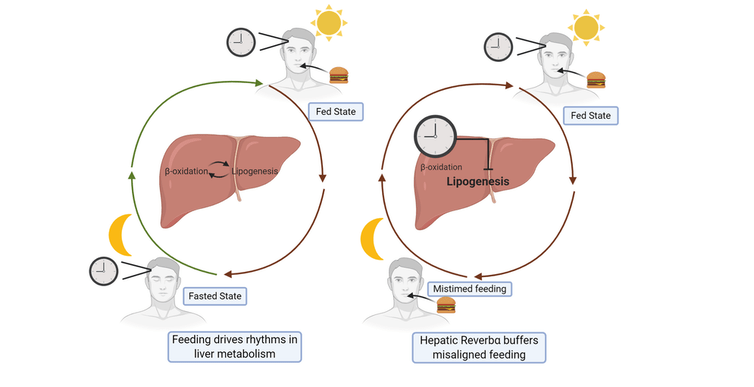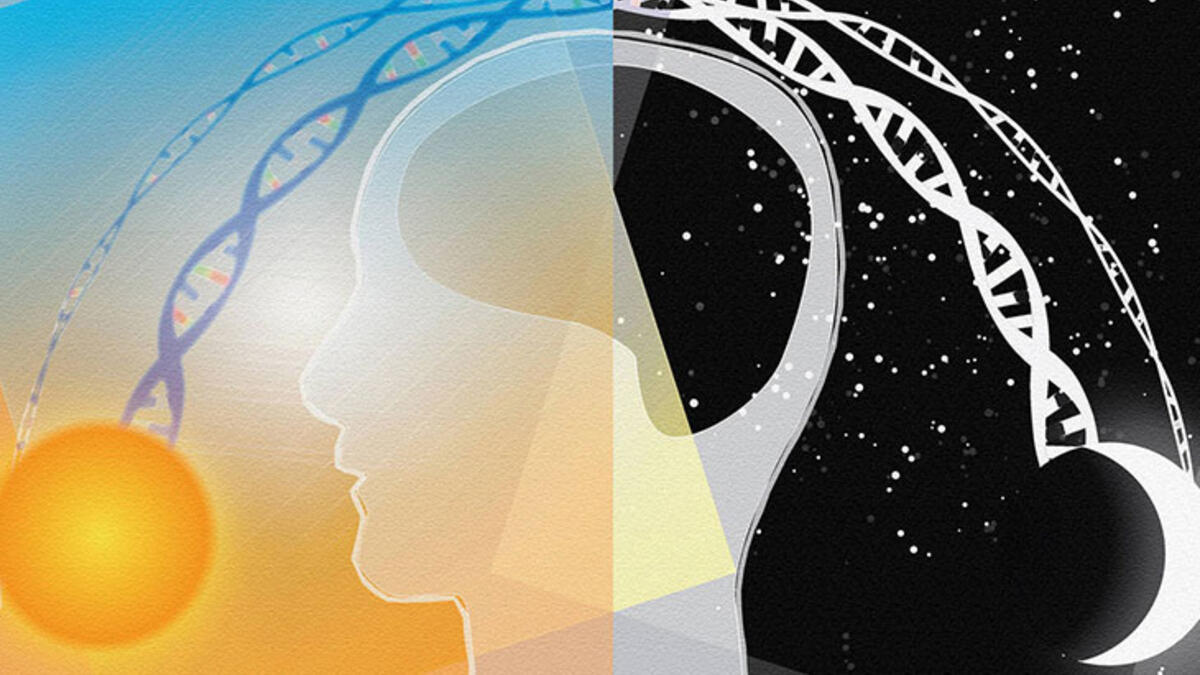The amount of light coming from outside, eating times and physical activities enable the biological clock to synchronize with the outside environment. Every cell in our body also has its own biological clock, which helps processes run smoothly. For example, the liver’s clock works to ensure that the rest of the body is timely energized.
However, our circadian rhythm can be disrupted by many factors, such as going to bed later than usual or eating late at night. Although occasional disruptions are not a serious problem, research shows that long-term circadian rhythm disturbances can affect health.
For example, many studies have shown that working in shifts regularly increases the risk of obesity and type 2 diabetes. And unfortunately, circadian rhythm disturbance is becoming more common in society due to light pollution, noise and electronic devices. And many of the factors that cause this deterioration can lead to serious health problems.
So how is the body able to manage one-off circadian rhythm disturbances, such as staying awake late at night or eating late at the weekend, without any health problems? Our recent study of how circadian rhythm controls metabolic processes to match our daily food intake gives us the answer to this question.
Liver Clock
An important component of our biological clock is a protein called REVERBα. This protein is one of the protein networks that keep our biological clock running in every organ of our body. However, it has been discovered that the natural genetic variation of the REVERBα gene is linked to obesity in humans.
The researchers also observed that mice that did not have this gene in any of their tissues had fat accumulation in and around their organs, and that these mice could be very obese when fed a fat diet.
We wanted to examine the effect of REVERBα on the liver more closely, as the liver is critical to maintaining energy balance and its function is highly circadian in dealing with hunger during sleep. To do this, we used a new type of genetically modified mouse from which only the liver organ had this protein extracted.
Surprisingly, we found that taking REVERBα actually had little effect.
In particular, we did not encounter the fat accumulation in this mouse, which we expect to have in the liver, which is normally seen in animals without REVERBα in any of their tissues. But when we mapped the liver genes likely to be under the control of REVERBα, we found thousands of genes, including genes that are major regulators of energy and fat metabolism.
So there was a paradox: a circadian clock regulator with many functions in the liver was not necessary for the other functions of the liver. This situation raised two different problems.
First, although REVERBα is readily available under normal conditions, it is not necessary to regulate fat metabolism. The second is the fact that previous findings linking REVERBα to obesity may actually be due to body-wide cues.
In particular, we thought that eating unexpected times could lead to obesity. This is because mice that do not have REVERBα in their bodies have an irregular eating habit.
To test this idea, we conducted an experiment to see how irregular feeding affects mice whose liver has been deleted from the REVERBα protein. Thus, it became possible to see how workers working in shifts are also affected.
Thanks to this experiment, we found that the irregular diet led to major changes in the genes that control fat metabolism, but these changes only occurred when REVERBα was ingested from the liver. This suggests that REVERBα moderates the effects of irregular eating, as seen in the diagram below.

How Does REVERBα Prevent Circadian Rhythm Disorders?
In this way, the biological clocks in our body protect against occasional changes such as late night eating. But when we constantly make movements that contradict our natural circadian rhythm, such as eating late or working the night shift, this protective system is overloaded, leading to obesity and diabetes.
Therefore, our study emphasizes how important it is to eat in accordance with our biological clock during the day. It is very important to establish a clear eating pattern between satiety (daytime) and hunger (nighttime) to ensure that our liver clock and all of our circadian rhythms work properly. Doing this is very difficult for shift workers, so it is essential to develop various methods to help these people.
Hital PAÇACI
Source: https://theconversation.com/circadian-rhythm-liver-gene-helps-body-keep-working-smoothly-after-late-nights-and-midnight-snacks-147223



